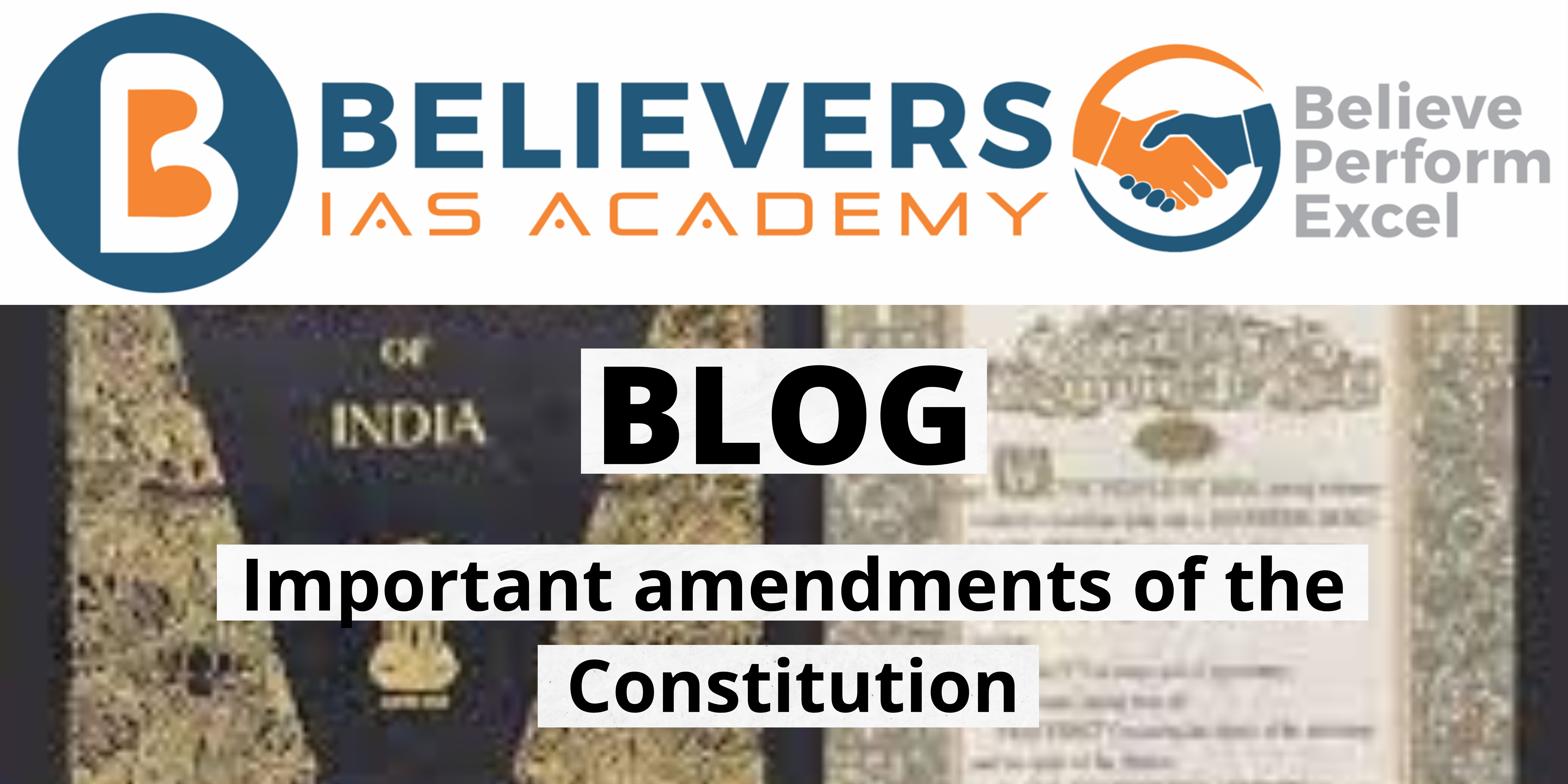Important Amendments of the Constitution – Part 1
Part 1
- Constitution of India is a living document and hence provides provisions to make adequate changes as required.
- These are known as amendments of the constitution.
- They are done under the procedure given under Article 368 of the constitution.
The important amendments
First Amendment Act, 1951:
- It empowered the states to make special provisions for socially and economically backward classes.
- Added a new schedule (the ninth) to protect anti-zamindari laws from the provision of judicial review.
- It added public order, friendly relations with foreign states, and incitement to an offense as reasonable restrictions on the freedom of speech and expression and made them ‘reasonable’ hence justiciable.
- The act clarified that state conducting trade and nationalisation of any trade or business by the state is not to be declared invalid on the ground of violation of the right to trade and business.
Seventh Amendment Act, 1956
- The act removed the classification of states into four categories i.e., Part A, Part B, Part C, and Part D states, and reorganised them into 14 states and 6 union territories.
- The jurisdiction of high courts was extended to the union territories.
- Provided for the establishment of a common high court for two or more states.
- Provided for the appointment of additional and acting judges of the high court.
Ninth Amendment Act, 1960
- This was done to give effect to the Nehru-Noon agreement regarding the territory of Berubari Union.
- Since Supreme Court held that the power of Parliament to diminish the area of a state (under Article 3) does not cover cession of Indian territory to a foreign country, parliament had to enact the Ninth Amendment Act, 1960.
Eleventh Amendment Act, 1961
- The procedure of election of the vice president was changed by creating an electoral college instead of a joint meeting of the two Houses of the Parliament.
- Clarified that the election of the President or vice president cannot be challenged on the ground of any vacancy in the electoral college.




